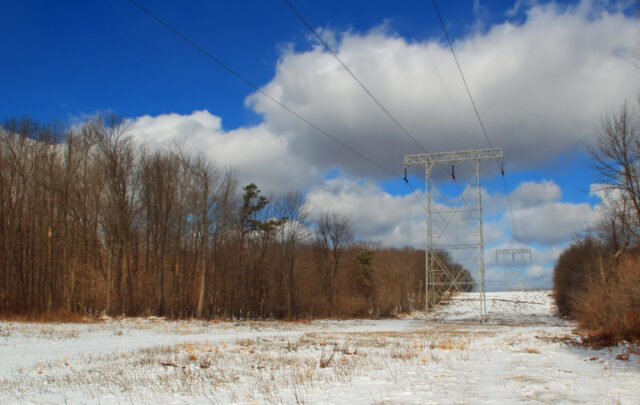Welcome to the ODAC Newsletter, a weekly roundup from the Oil Depletion Analysis Centre, the UK registered charity dedicated to raising awareness of peak oil.
After weeks of prediction and build up, this was finally the week of the UK government spending review statement. With the government insisting that it will be the greenest ever there was much anticipation of how the Department of Energy and Climate Change would fare in the review.
In the event, high profile programmes like the renewable heat incentives and feed in tariffs (FiT)s have been preserved. The Renewable Heat Incentive will get £860 million directly from government — the scheme is due to start in 2011. The FiTs will continue as they are for now, however the review which is scheduled for 2012 may be brought forward if uptake is ‘higher than expected’ — though what is expected isn’t made clear. Also, from 2014-15 £40 million will be cut from the budget.
Funding for renewables, including money to prepare port infrastructure for the next wave of off-shore wind, has also remained in place. Meanwhile the flagship ‘green investment bank’ to provide support for new low-carbon technologies, will come into being. Many are disappointed though that it is not a bank, but rather a government fund, and that with only £1bn to spend it is insufficient for the task at hand.
Carbon capture and storage remains on the agenda, but secured government funding is currently only on the table for one of the four proposed pilot projects. Whether even the one pilot will become a reality anytime soon was however in doubt this week as EoN withdrew from the competition for the funding stating that plans for a new plant at Kingsnorth, their entry, were currently uneconomic.
In energy policy the first big announcement of the week actually came on Monday with the widely expected news that the government will not be pursuing the Severn barrage due to its cost. The statement also set out the government’s chosen sites for new nuclear builds, which energy secretary Chris Huhne insists are a key part of government policy. Nuclear received support in the spending review via increased funding for the Nuclear Decommissioning Authority. While the government insists it will not provide subsidies for new nuclear it is not ruling out a framework for taking ownership of waste at a set price, or setting limits to operator liability for accidents. Depending on the levels set for these provisions they could be construed as de facto subsidies.
In transport where the majority of the UK’s oil dependence resides, news that rail fares are to be allowed to increase at 3% above inflation from 2012 and that bus subsidies are to be reduced goes in the wrong direction. Surely this illustrates the need for peak oil planning to be included in central government policy.
Also worrying for peak oil planning was the slashing of Local Authority funding by 28%. ODAC has worked with a number of Local Authorities to raise awareness of the coming oil crisis and it is at this level that many of the required changes can be put into effect. On the positive side Local Authorities are to be given greater autonomy on how they spend whatever money is left — so this could be the ideal time to approach them with tips on how to do so from Alexis Rowell’s book Communities, Councils and a Low-Carbon Future: what we can do if governments won’t released this week. ODAC can provide the expert speaker if you can provide the audience of councillors!
Oil
French police break key blockade
Riot police in France have taken over a major oil refinery east of Paris, one of 12 facilities blockaded by strikers for more than 10 days.
Clashes broke out hours after they removed a barricade outside the Grandpuits refinery early on Friday…
Crude Oil Rises in New York as Reports Show Improved U.S. Economic Outlook
Oil climbed, trimming its second weekly loss, on speculation a recovery in the U.S. economy, the world’s biggest crude consumer, will stoke fuel demand.
Futures retraced some of yesterday’s 2.4 percent decline as Asian equity markets gained and investors bought contracts against a weakening dollar. Jobless claims fell in the U.S., the world’s largest economy, while the New York-based Conference Board’s index of leading economic indicators climbed, matching the forecast of economists surveyed by Bloomberg News…
Saudi Arabia says easy oil is not over-Naimi
Saudi Arabia’s oil minister said on Monday the age of easy oil was not over as the kingdom still holds at least 88 billion barrels of oil in its largest oilfield.
“I am sorry to disappoint people, easy oil is not over,” Ali Al-Naimi told reporters in Riyadh on the occasion of OPEC’s 50th anniversary…
Moscow to lower oil export taxes
Russia is preparing to introduce a new profit-based tax on new oilfields from 2012, Sergei Shatalov, the deputy finance minister said, in a move that could quell fears of production decline due to the current tax regime…
Oil heats up as bulls target $100-a-barrel price
Oil at $100 a barrel? Not as unlikely as it sounds, according to a note by Goldman Sachs, Wall Street’s biggest commodities dealer. Helped by the dollar’s recent tumble, crude prices have been rising fast. And, if Goldman is correct, oil will break the triple-digit barrier by the end of next year…
BP tells court it waives cap on spill liability
BP Plc told a court it was committed to waiving the legal cap on its liability from the Gulf oil spill, which could have limited the cost to the oil giant to $75 million plus clean-up costs.
“BP has chosen to waive the statutory limitation on liability under OPA,” BP said in a court filing on Monday. OPA is the Oil Pollution Act of 1990…
Gas
Kuwaiti firm among winners as Iraq sells off gas fields
Iraq has awarded three of its established gas fields to foreign consortiums in the third stage of an energy sell-off that it hopes will transform the ravaged nation into a regional economic force.
The three fields, in the south, centre and far west of Iraq were sold at, or slightly below, the price the oil ministry had wanted. They were taken by three consortiums that now have rights to develop about 10% of Iraq’s proven gas reserves – around 300bn cubic metres…
Coal
E.ON pulls out of Kingsnorth carbon storage bid
The energy giant’s Kingsnorth plant in Kent was one of two schemes shortlisted in the contest for Government funding worth potentially up to £1bn to install the technology as part of its new coal-fired power station.
A consortium led by Iberdrola-owned Scottish Power is now the only candidate left in the competition…
Study: World’s ‘Peak Coal’ Moment Has Arrived
Is the world about to begin running out of coal?
Two researchers say so. In a peer-reviewed article published in the journal Energy, they write that the world will hit “peak coal” production next year or shortly thereafter, and then mining would begin a long, steep decline…
Mining and Minerals
China denies reports on halting export of rare earth
China vehemently denied Wednesday that it has halted export of rare earth materials amid news reports that Beijing started blocking shipments of the crucial minerals to the United States and Europe following similar measures against Japan.
“China will continue to provide rare earth to the rest of the world,” the ministry of commerce said in a statement faxed to CNN. “At the same time, to protect exhaustible resources and achieve sustainable development, China will also continue to implement restrictive measures on the mining, production and export of rare earth.”…
US inquiry into China rare earth shipments
US trade officials say they are looking into a New York Times report that China is blocking shipments of rare earths to the US and Europe.
China mines 97% of the specialist metals crucial to green technology…
Biofuels
US to subsidize farmers to grow new biofuel crops
The U.S. government plans a half billion dollars in subsidies to help farmers grow the next generation of biomass crops — switchgrass and woody plants instead of corn, farm lobbyists and congressional staff workers told Reuters.
Agriculture Secretary Tom Vilsack will announce the subsidy program on Thursday, they said. An estimated $525 million would be paid over 15 years to defray farmers’ costs…
UK
How has Decc fared in the spending review?
On the face of it, the Department of Energy and Climate Change (Decc) came out of the carnage better than expected: a 30% cut in administrative costs but just 5% annual cuts for four years, and capital spending increased. Promises of big money were made for renewables and carbon capture and storage, and a new green investment bank was confirmed.
But if the winners were technologists and big businesses, the losers appeared to be the poor, who will see energy efficiency grants designed to improve fuel poverty slashed…
Spending Review: what it means for the Environment and Climate Change
Department of Energy and Climate Change
What will be saved?
Spending Review: what it means for the Foreign Office The Green Investment Bank will go ahead with £1bn to fund big energy infrastructure projects such as offshore wind farms. Further funds will be found through asset sales and the private sector.
There will also be around £1bn to develop ‘carbon capture and storage’ or CCS technology that stores the emissions from coal-fired power stations underground…
Fury over £1bn green stealth tax in spending review
About 5,000 large and medium-sized companies with bills of more than £500,000 per year will be hit by the new tax.
George Osborne, the Chancellor, did not mention the levy in his spending cuts speech. But the details were buried in Treasury documents setting out how money will be raised to pay down the deficit…
Transport: Commuters buffeted by 10 per cent increase in rail fares
Rail users are to be hit with soaring ticket prices after the Government announced measures that will see fares rise at more than twice the rate of inflation for three years in a row.
The Department for Transport (DfT) calculated that rail fares would rise by 10 per cent in real terms over the next four years. However, campaigners said season tickets could increase by as much as 30 per cent by 2014…
Spending Review: Forecasts rely on ‘heroic assumptions’
The government is relying on “heroic assumptions” in forecasting economic growth while making big cuts to spending, auditor KPMG has warned.
The economy is forecast to grow by 2.25% next year, factoring in the impact of cuts…
Councils face collapse, KPMG warns
Some local authorities could be bankrupt within four years in a ruthless new regime engendered by the Government’s Comprehensive Spending Review, a KPMG specialist has warned.
So could a number of companies in the local government supply chain, they caution…
Nuclear power: Eight sites identified for future plants
The government has identified eight sites in England and Wales as suitable for future nuclear power stations while ruling out a further three.
Energy Secretary Chris Huhne said Dungeness in Kent and both Braystones and Kirksanton in Cumbria were not suitable for environmental reasons…
Huhne drops Severn barrage to invest in wind power
Ambitious plans to harness the power of the Severn estuary to light up one in 20 of the UK’s homes are to be abandoned as a result of the Government’s attempt to address the nation’s deficit.
Chris Huhne, the Secretary of State for Energy, will tomorrow jettison the world’s largest tidal energy project, rather than make the taxpayer foot an estimated bill of £10bn to £30bn for the untested technology…
A step-by-step guide to greening your local council
If you already have a low-impact lifestyle and want to step it up a level, turn your attention to your local council. Here’s how to get the authorities in your area to act
Getting the ball rolling
Your first step is to go to your council’s website and find out what it is already doing about climate change and sustainability issues. Is it among the low-carbon pioneers or a climate-denying laggard? All councils operate in response to multiple agendas and pressures, so unless there is an active interest from local people to serve as a counterweight to the power of special interests and central government, the chances are that your council isn’t doing very much….
Economy
UK borrowing at £16.2bn in September
The government borrowed a record £16.2bn to plug the gap in the public finances in September, figures from the Office for National Statistics show.
It is the highest borrowing figure for September on record, and is unexpectedly up from the £14.8bn borrowed in September last year…
China’s rapid economic growth slows in third quarter
China says its economy has maintained robust growth in the third quarter of 2010, but at a slightly lower rate.
Official figures show a drop from just over 10% growth to 9.6%…
Transport
China electric vehicles to hit 1 million by 2020: report
China’s output of electric vehicles is expected to reach 1 million units by 2020, the official Xinhua news agency said on Saturday, citing a senior government official.
Green vehicles are key for the development of China’s auto industry as auto exhaust emissions already account for 70 percent of the country’s air pollution in major Chinese cities, Wan Gang, Minister of Science and Technology, was quoted as saying…
How electric cars could become a giant battery for renewable energy
The United States now has more than 35GW of installed wind energy, enough to power close to 10 million homes. Close on the heels of this ongoing renewable energy revolution is another green technology: By next year tens of thousands of Nissan LEAFs, Chevy Volts, and other electric vehicles will start rolling off assembly lines.
The electricity generation and transportation sectors may seem like two disparate pieces of a puzzle, but in fact they may end up being intimately related. The connection comes in the form of the vehicle-to-grid concept, in which a large electric vehicle (EV) fleet — essentially a group of rechargeable batteries that spend most of their time sitting in driveways and garages — might be used to store excess power when demand is low and feed it back to the grid when demand is high. Utilities and electricity wholesalers would pay the EV owners for providing that power…























